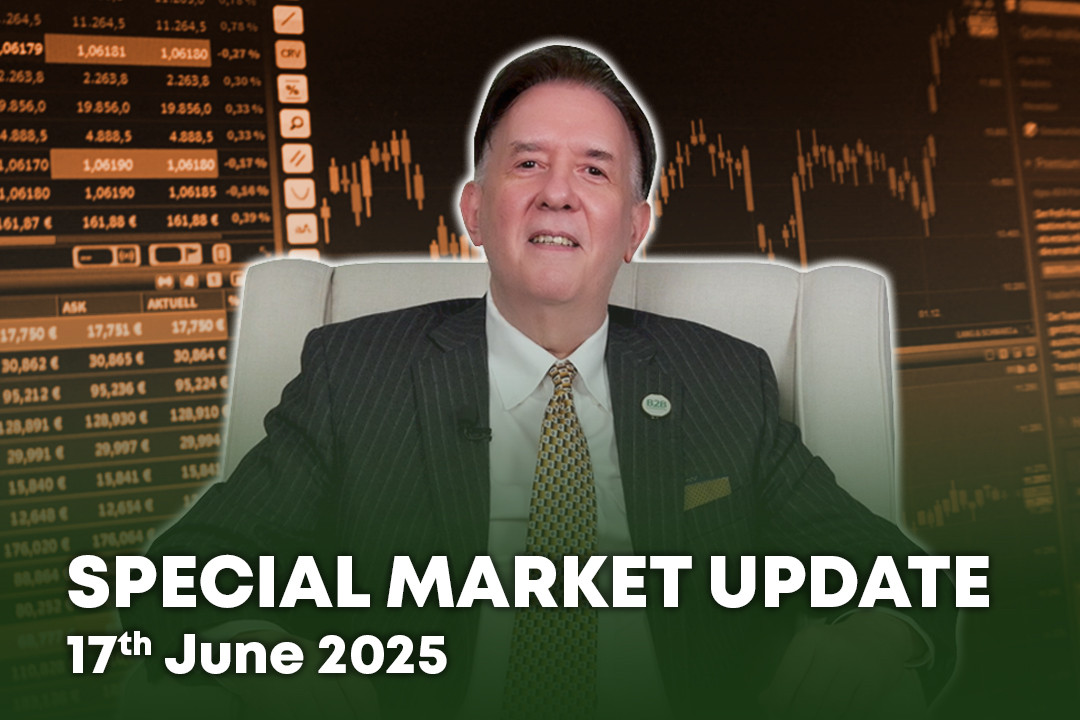By
B2B Cambodia
on

This is a B2B Cambodia Special Market Update on 17 June 2025, Anthony Galliano, Group CEO of Cambodian Investment Management(CIM), explains how the escalating conflict between Israel and Iran could derail the U.S. administration’s tariff strategy.
Watch the video in English above.
- On April 9th the U.S. administration paused the reciprocal” tariffs for 90 days with the deadline for potential resumption falling on July 8, 2025. The 90 day window was intended to be a period during which countries could urgently negotiate bi-lateral trade agreements with the United States. In the meantime, the administration imposed baseline tariffs of 10% on most trading partners with additional specific tariffs on Canada, Mexico and China. However, there may be a fly in the ointment, to use an idiom, which may be a snag in the administration’s plans to impose tariffs after the deadline on July 8th.
- On June 12th Israel attacked Iran with strikes involving approximately 200 aircraft targeting over 100 sites. This conflict is escalating by the minute with both sides exchanging daily if not frequent attacks. Before the attack on June 12th, West Texas Intermediate (WTI) crude oil, a U.S. benchmark for global oils prices, was trading at USD 68.50 a barrel. The price climbed to USD 76.24 a barrel on the day of the attacks, an increase of 11% before settling around USD 73.21 a barrel, up 7% for the day.
- On April 2nd, the administration proclaimed on its Liberation Day to impose tariffs on 90 countries and territories, With the prospect of inflationary tariffs, the administration has had to grapple with campaigns promises which played a big part in the election. On August 9, 2024, there was a promise “Starting on day one, we will end inflation and make America affordable again, to bring down the prices of all goods.” This was repeated in a rally August and September, pledging to "rapidly drive prices down"—covering energy, groceries, electricity, auto costs, housing, and airfare. Regarding energy prices, a pledge at a on August 14, 2024 to cut energy and electricity prices by 50% within 12–18 months. Subsequently a stated goal of getting gasoline “below $2 a gallon.”
- While there is no doubt that tariffs are substantially passed on to the consumer and increase inflation, how does the price of oil impact the U.S. economy? Energy makes up about 7% of the Consumer Price Index known as the CP). A 10% rise in oil prices may lead to a 0.3–0.4 percentage point rise in annual inflation, depending on duration and pass-through effects. High oil prices often lead to tighter Federal Reserve policy, which affects interest rates, investment, and GDP growth. If oil prices rise, a federal reserve interest cut may be off the table and the fed may even raise interest rates if the spike escalates.
- What has history taught us about the correlation of wars and economic shocks? In 1973 through 1974, during the Yom Kippur war and Arab Embargo, oil process went form USD 3 a barrel to USD 12 a barrel, inflation increased from 6.2% to 11%. During the Gulf War in 1980, prices went from USD 21 a barrel to USD 39 a barrel, the CPI climbing from 4.8% to 6.1%. The Iraq War saw prices gradually rise from USD 25 a barrel to USD 40 then USD 50 a barrel in 2003. In 2011 during the Libya Civil War, Brent Oil rose to USD 120 a barrel. In in 2022, with the Ukrainian War and subsequent sanctions, the price of oil went from USD 95 a barrel to USD 130 a barrel, the CPI rising from 7% to 9.1%.
- If the conflict between Isael and Iran continues or escalates, and if it spreads, oil prices will likely continue their rise as they historical have and inflation will climb according. That begs the question, can the economy absorb both an oil price spike and additional taxes in the form of tariffs, both inflationary. A short-term scenario is the tariff pause will likely be extended to allow for bi-lateral trade deal negotiations to continue and to buy time and see how the middle east conflict plays out.